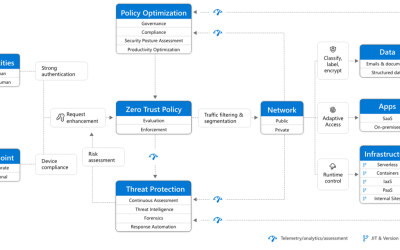Network Security: Protecting Your Digital World

In today’s digital age, protecting your online presence is more important than ever. With the increasing number of cyber-attacks, it’s crucial to secure your network from potential security breaches. This article aims to provide you with a comprehensive guide to network security, including its importance, types, and best practices.
Importance of Network Security
Network security is the practice of protecting computer networks from unauthorized access or attacks. It’s crucial to have a robust network security system in place to safeguard your sensitive data and protect against cyber threats. Here are some of the key reasons why network security is essential:
Protects Sensitive Information
Network security measures ensure that your sensitive information, such as passwords, credit card details, and personal data, is protected from cybercriminals. This is especially crucial for businesses that handle confidential data.
Prevents Malware Attacks
Malware is a type of software designed to harm your computer or network. Network security systems are designed to detect and prevent malware attacks, minimizing the risk of data loss or theft.
Maintains Business Continuity
Network security breaches can cause significant disruption to business operations, leading to lost productivity, downtime, and revenue loss. A strong network security system ensures that your business operations continue uninterrupted.
Types of Network Security
There are several types of network security measures that you can implement to protect your network. Here are the most common types:
Firewalls
A firewall is a network security system that monitors and controls incoming and outgoing network traffic. It acts as a barrier between your network and the internet, blocking unauthorized access and preventing malicious traffic from entering your system.
Antivirus Software
Antivirus software is designed to detect and remove malware from your computer or network. It scans your system for viruses and other malicious software, and then removes them to prevent damage to your data.
Virtual Private Network (VPN)
A VPN is a secure and private network that allows you to connect to the internet securely. It encrypts your data and hides your IP address, making it difficult for cybercriminals to intercept your traffic.
Intrusion Detection Systems (IDS)
An IDS is a network security system that detects unauthorized access or malicious activities on your network. It scans your network for suspicious traffic and alerts you to potential security breaches.
Best Practices for Network Security
Implementing best practices for network security can help minimize the risk of security breaches. Here are some essential practices to follow:
Keep Your Network Up to Date
It’s crucial to keep your network up to date with the latest security patches and updates to prevent security vulnerabilities.
Use Strong Passwords
Using strong and unique passwords for all your network devices and accounts can prevent unauthorized access to your system.
Limit Access to Your Network
Limiting access to your network to only authorized personnel can prevent security breaches.
Use Encryption
Using encryption to protect your data can prevent unauthorized access and protect your sensitive information.
Educate Your Employees
Educating your employees on network security best practices can help prevent security breaches caused by human error.
In conclusion, network security is essential in today’s digital age to protect your sensitive data and prevent cyber threats. Implementing the best practices for network security can help safeguard your network and prevent potential security breaches.
